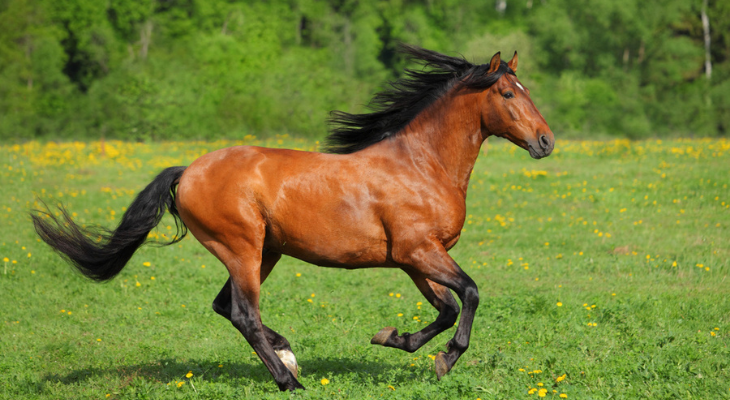
Anhidrosis: Could Your Horse Be Affected by This Potentially Dangerous Condition?
Does your horse barely break a sweat after a long ride? A condition called anhidrosis could be the reason. Anhidrosis occurs when your horse does not produce enough sweat and can affect horses of any age, sex, or breed.
Why Sweating Is So Important
Sweating is nature's way of keeping your horse cool. In fact, horses lose 65 to 70 percent of their body heat through sweating and 15 to 20 percent through breathing, according to The LSU Ag Center. Evaporating sweat reduces body heat and prevents your horse from overheating. If your horse doesn't sweat enough, it may develop heatstroke, a potentially life-threatening condition.
It's not clear why some horses develop anhidrosis and others don't. The condition is more common during heatwaves and periods of high humidity. Although any equine can develop anhidrosis, it occurs more often in horses that live in the Gulf Coast states and or the southeastern U.S., according to The Horse.
Common Symptoms of Anhidrosis
Some horses with anhidrosis stop sweating completely. Others may develop partial anhidrosis and may still sweat under the saddle and mane, behind the hind legs, or along the flank. Your horse's sweating problem could start suddenly or happen gradually.
Signs and symptoms of anhidrosis may include:
- Fatigue
- Hot skin
- Flared nostrils
- Decreased intake of water
- Disinterest in food
- Flaky, dry skin
- Hair loss
- Rapid, shallow breathing
- Increased heart rate
- Collapse
Horses with anhidrosis don't cool down quickly after exercise. Temperatures in the 99 to 101.5 Fahrenheit range are normal for horses, according to the American Association for Equine Practitioners. When a horse does not sweat enough, its internal temperature can soar to 104 F or higher, increasing the risk of heatstroke and death. Horses that have severe cases of anhidrosis may not even be able to stand outside on hot, humid days. Even if they don't exercise, their temperatures may increase. Rapid breathing, even if your horse is in the shade, could be a sign of anhidrosis.
Diagnosing Anhidrosis
Your equine veterinarian can determine if your horse has anhidrosis based on an examination and the symptoms you report. Your vet may recommend a simple test to confirm the diagnosis. During this test, the veterinarian injects terbutaline into the skin. Terbulatine, a medication used to open the airways in the lungs, can also trigger sweating. Your horse's sweat will be collected by absorbent pads applied to the skin. At the conclusion of the test, the pads will be weighed to determine if your horse perspires less than normal.
There's currently no medication that's effective in treating anhidrosis, but you can take a few steps to protect your horse's health, including:
- Providing plenty of shade and cool water
- Using misters and fans to cool down your horse
- Keeping your horse inside on hot days (as long as your stable contains fans and adequate ventilation)
- Limiting turnouts to the cooler evening or early morning hours
- Offering electrolyte and salt supplements, especially when hot, humid weather is expected
If these strategies aren't helpful, moving your horse to a cooler, less humid climate may be the only option. Some horses regain the ability to sweat normally when they no longer have to endure hot, humid temperatures, according to Practical Horseman.
Horses with anhidrosis need to be monitored closely by an equine veterinarian. If you think your horse may have the condition, get in touch with our office as soon as possible.
Sources:
American Association of Equine Practitioners: Signs of a Healthy Horse
The Horse: Understanding Anhidrosis, 9/4/15
American Association of Equine Practitioners: Understanding Anhidrosis
